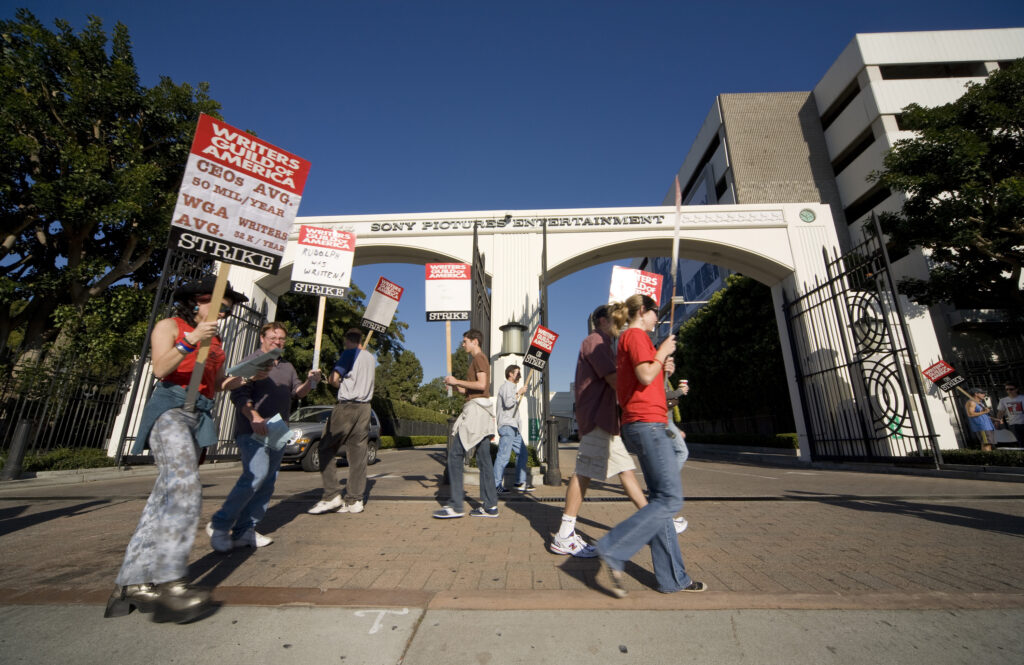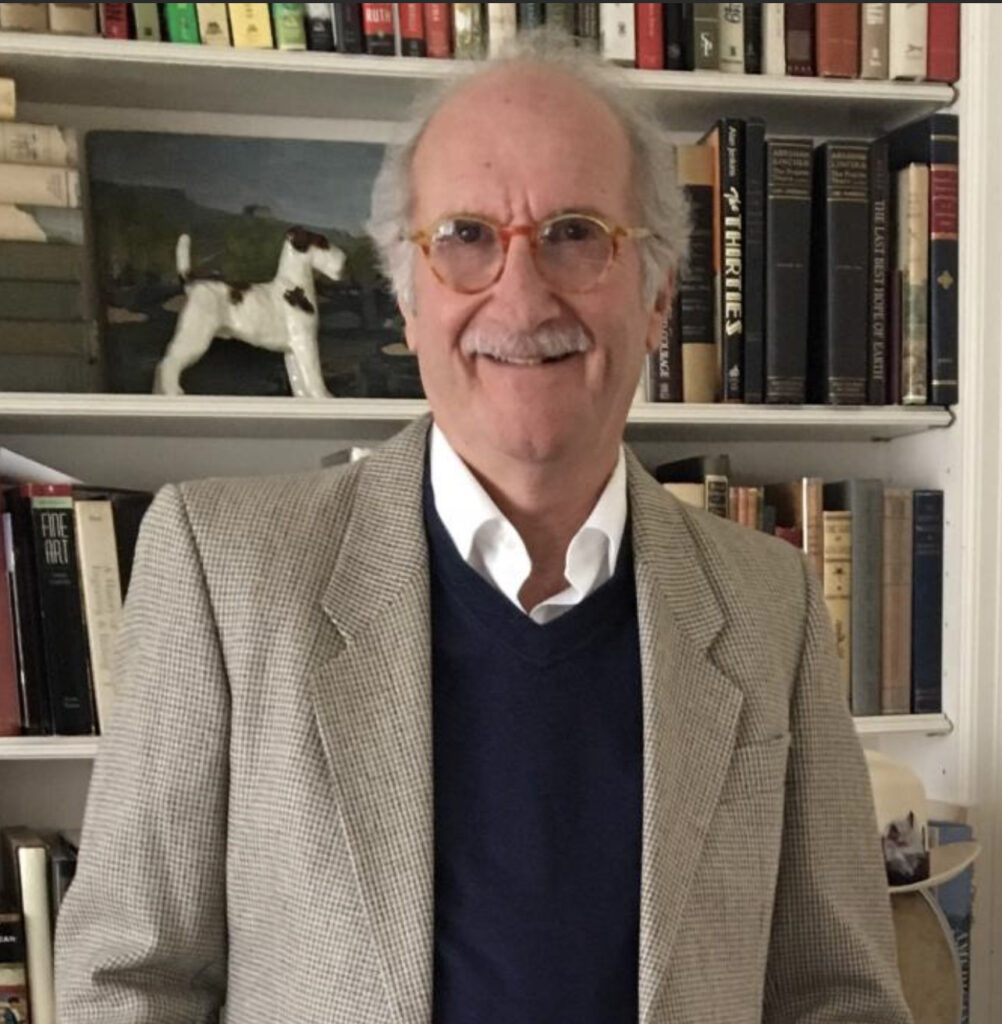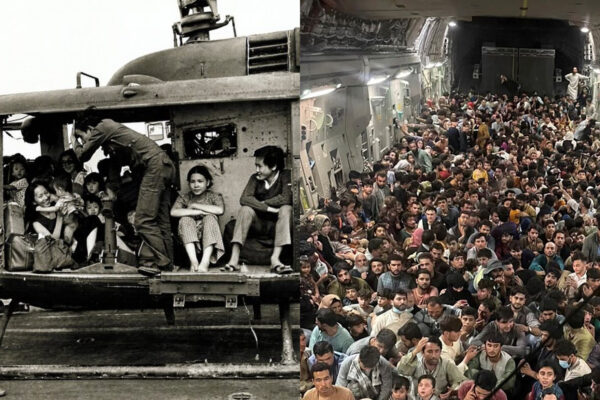
A longtime member of the Writers Guild of America (WGA), Richard Chapman has written more than 200 hours of network television. But as the WGA settles into its fourth strike in as many decades, Chapman, a senior lecturer in film and media studies in Arts & Sciences at Washington University in St. Louis, wonders whether this time will be the charm.
The email came in past midnight. My union, the Writers Guild of America West, was now on strike. I was instructed to meet my picket captain later that afternoon in front of the Marathon Avenue gate at the Paramount lot, where I could pick up my sign and join my fellow writers for the march up and down Melrose.
But I don’t live in Los Angeles. I live in St. Louis and teach screenwriting in the Film & Media Studies Program at Washington University. I have reading and grading and, in another week, Commencement. How can I participate in this watershed moment — the FOURTH strike I’ve experienced in my 40 years as an active WGA member?
I can’t just drop everything and catch a flight to LA, but maybe I can make my own sign and picket the local CBS/Paramount affiliate? How do I get Kent the weather guy to understand his uber-bosses don’t want to compensate me fairly for any episode I might write for their streaming series “Yellowjackets”? Will Laura the traffic lady cross my one-man picket line? Maybe I should just boycott watching their morning show?

Wait, what about the Apple Store in the St. Louis Galleria? The TV division of that behemoth wants to produce fewer season episodes — eight to 10 shows in a couple months as opposed to the 22 I used to produce over a year’s span in my showrunning career — effectively forcing writers to work longer hours for less pay. Yeah, Apple is rotten to its greedy core!
But hold on. Don’t I get hours of patient advice from my friendly tech support guru at that store? Will he care that the TV division of his exploitative employer is reaping windfall profits while writers’ revenues are down 23% from our last contract negotiation? I can’t embarrass him. And besides, aren’t I about to buy a new Mac? Maybe I can picket the Disney store in St. Charles. Is there a Disney store in St. Charles?
OK, maybe picketing is out. Haven’t I already demonstrated union solidarity with all the “frequent striker miles” I’ve earned during the last three strikes? Maybe I can use my platform as an educator to highlight the current strike as a “teachable moment,” one that will help prepare our film and media majors for the challenges they’re sure to face.
Many of our graduating seniors are planning to move to LA and seek jobs as staff writers on the plethora of TV series now in production. Oops! I mean, WERE in production, until things came to an abrupt halt this week.
These freshly minted writers deserve a shot at joining a writers’ room. But they also need to know that the AMPTP (Alliance of Motion Picture and Television Producers) has sanctioned “mini-rooms” controlled by showrunners and a precious few of their friends. This effectively limits the number of staff writers on a show and shuts the door to a generation of talented creators seeking to break into the industry. In my day, we grew our own, employing as many as 10 new writers who would be given the security of an entire year’s compensation to gain experience and learn how to craft their own series. In today’s mini-rooms, two or three writers create and design an entire series before shooting even begins.
So, yes, there are lessons to be learned from the battles we fought in 1981, 1988 and 2007. And as the new hyphenate I’ve become — writer-teacher — perhaps I can still find a meaningful way, in my own neighborhood, to participate.
Maybe, with this current strike, the fourth time WILL be the charm.
Richard Chapman is a senior lecturer in film and media studies in Arts & Sciences at Washington University in St. Louis. His credits include the television series “Simon & Simon,” “The New Alfred Hitchcock Presents” and “Disney’s Absentminded Professor,” as well as the Emmy-nominated HBO film “Live From Baghdad” (2002) and the Vietnam War documentary “Dateline-Saigon” (2020).


